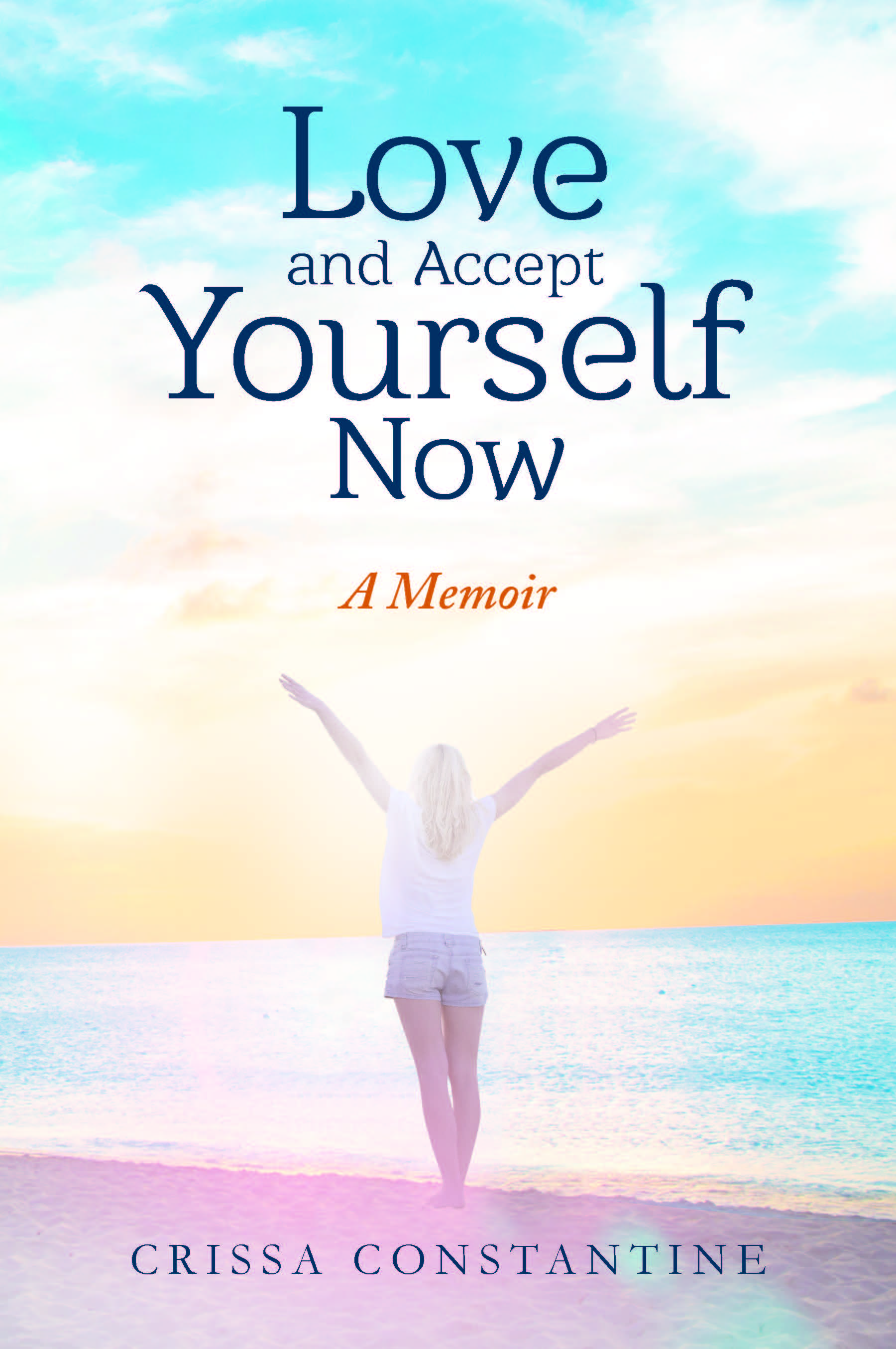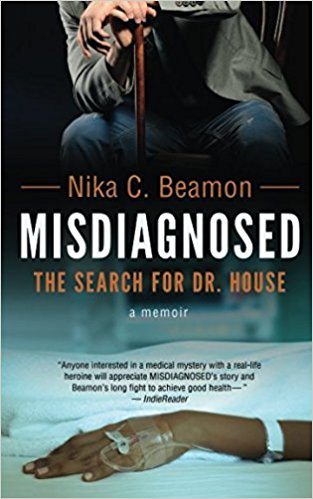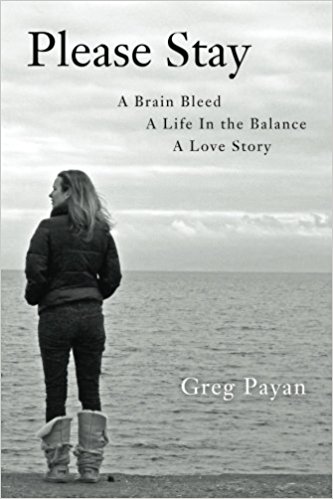Interview Feature by Cristina Deptula
Four Memoirists Discuss the Healing Power of Words
Kris Francoeur's 2019 memoir Of Grief, Garlic, and Gratitude is about the loss of her young adult son to an overdose. She recalls what one editor told her before she began: “If you are going to do it, do it well. Dig.” Francoeur, who’s also a novelist, adds: “She was telling me I really had to revisit seeing our son dead and write about how it felt.”
Bibliotherapy in counseling circles refers to people reading, researching, and writing about their experiences as part of learning to cope—under the guidance of a therapist. I’ve also come to think of bibliotherapy as part of the writing process for authors who convey their own experiences of surviving trauma in their published work.
I began this interview project in 2019, but with what’s going on in society now—the police violence against the Black community, the coronavirus and its continuing economic disruption—I believe insights gleaned from writing about individual trauma apply to almost everyone. Many of us are understandably scared, sad, and upset.
 As a publicist and the founder of Authors, Large and Small, I’m honored to represent each of the self-published memoirists featured here and to share, in a small way, in their experiences. I was diagnosed on the autistic spectrum as an adult and have received therapy myself. During this process, my mother mentioned bibliotherapy, thinking she’d invented the word. But it turns out that bibliotherapy is considered a legitimate treatment approach, especially by cognitive behavioral therapists. One 2015 literature review of the “effectiveness of creative bibliotherapy,” for instance, indicates it has at least some value in helping children from five to sixteen years old avoid the “internalizing behavior” that can lead to anxiety and depression.
As a publicist and the founder of Authors, Large and Small, I’m honored to represent each of the self-published memoirists featured here and to share, in a small way, in their experiences. I was diagnosed on the autistic spectrum as an adult and have received therapy myself. During this process, my mother mentioned bibliotherapy, thinking she’d invented the word. But it turns out that bibliotherapy is considered a legitimate treatment approach, especially by cognitive behavioral therapists. One 2015 literature review of the “effectiveness of creative bibliotherapy,” for instance, indicates it has at least some value in helping children from five to sixteen years old avoid the “internalizing behavior” that can lead to anxiety and depression.
In response to my emailed questions in the summer of 2019, Kris Francoeur, Crissa Constantine, Nika Beamon, and Greg Payan described how and why they created their books after surviving trauma. While each person’s experience was their own, their stories point to common threads about the role of reading and writing in psychological healing. 
I asked each author these three questions:
- Does writing as a way to process and share one’s journey truly enhance one’s resilience?
- How, exactly, does writing help people in crisis, and how does reading a memoir from a fellow survivor help a reader survive?
- How do you move from writing for personal therapy to writing for publication, and is there some middle ground there?
Writing a memoir has been personally therapeutic for these authors. They've also helped me to expand my own capacity for compassion and empathy—to hold space for grief and pain I can’t solve—to find and savor moments of grace I might otherwise overlook. Reading their books and working on their behalf has taught me the patience and resilience required for any unpredictable emotional journey.
• • •
In their interview responses, all four authors note that surviving medical or emotional crises involves a separate process of psychological recovery. Writing can create a space for this process. As Francoeur explains:
For me, especially with great editors who pushed me to truly look back fully, it helped me process the emotions which I had held at bay for so long—and in doing so, it allowed me to heal. By looking honestly at it, good and bad, and reflecting on it, it helped me gain strength and hope and helped me decide how I wanted to live my life.
 Constantine, a classical pianist whose 2018 memoir Love and Accept Yourself Now highlights how she survived ovarian cancer, puts it this way:
Constantine, a classical pianist whose 2018 memoir Love and Accept Yourself Now highlights how she survived ovarian cancer, puts it this way:
Writing about one’s desire to overcome a crisis is a wonderful survival strategy. One can become more objective about problems by writing and less paralyzed by fear. Writing can help one to focus on resilience and find solutions to problems.
Beamon, an ABC news reporter in New York City, began her 2014 memoir Misdiagnosed: My Search for Dr. House as a quest for answers after experiencing sudden, debilitating symptoms such as extreme fatigue and nausea. She goes on to describe how she navigates life with igG4-RD, a chronic autoimmune condition, and says of the writing process:
Writing when I’m in crisis gives me a way to think through my emotions and examine whether they are as dire as I believe they are. Additionally, I can read back my thoughts, cry, laugh, or release myself in any way that helps me move forward.
Payan, a New Jersey broadcast journalist, wrote his 2018 memoir Please Stay about his now wife’s brush with death and her recovery after an aneurysm burst in her brain. “I felt in the moment as if I were doing everything wrong,” he admits. But he points to writing as a way to let go of his regrets:
Years later, when my wife was better, I went through all my notes and correspondence. I didn’t feel I did everything wrong, but I did feel there were so many things I wish I’d done differently. And then, finally, once my story got out there, I got feedback from strangers who read the story, and I looked back and realized the strength it took to get through it all.
Payan and the other authors note that the benefit of writing such a book is not only therapeutic for themselves but for readers who have gone through similar crises. Francoeur says she often hears from readers who have also lost family members. Beamon shares parts of her story in online support groups for those with chronic illness. She says she draws strength from reading the stories of other people who have found treatments that relieve some symptoms.
Payan adds that going through a crisis “just makes you feel so alone”:
There’s so much quiet time where you’re alone with your thoughts despite the love and support of friends and family. Much like any support group, we, as humans, need to be around others who have felt what we’re feeling…. Lifelong friends can tell you it’s going to be okay, but for some reason, those who endured what you did or a similar crisis, their words just resonate more.
Constantine agrees about our human need not to be alone in emergency situations—an observation that now feels directly relevant to the isolation so many are experiencing during the coronavirus pandemic and the need to protest collectively against the murder of George Floyd by a white police officer. Of the value of memoirs for readers, she says:
We feel hopeful when we read stories of those who overcome adversity, whether they be fairy tales, memoirs, great literature, or holy texts, and we say to ourselves, ‘If they can do it, I can do it! I'm not going to give up the fight to survive!’
While each of these authors intended to write books that would encourage others, Constantine and Beamon also did so out of a desire to convey practical information to the general public. Beamon says she wished to help able-bodied people grasp the unpredictable ups and downs of chronic illness. Constantine says she aimed to convey the healing power of self-compassion, a concept supported by psychiatrists and the Dalai Lama, as a step to creating a more caring world.
While they were still in crisis, Constantine and Francoeur adopted the practice of writing down things for which they were thankful. Then, with the encouragement and assistance of editors, they decided to develop their journals into publishable books.
Francoeur remembers her editors urging her to go beyond the first draft, which basically narrated a sequence of events, to explore the emotional impact of losing her son. Once she decided to create a memoir for others to read, the writing became a therapeutic process, too, just as grieving and healing had been.
 On the other hand, Beamon says she doesn’t feel a difference between writing for personal therapy and writing for publication, noting that she puts her raw emotion and honesty into each piece. She shares her experience and what she’s learned about her condition in medical forums online as well as in Psychology Today, the Huffington Post, and other sites.
On the other hand, Beamon says she doesn’t feel a difference between writing for personal therapy and writing for publication, noting that she puts her raw emotion and honesty into each piece. She shares her experience and what she’s learned about her condition in medical forums online as well as in Psychology Today, the Huffington Post, and other sites.
As for Payan, he says he didn’t journal as a form of personal therapy during his wife’s medical crisis. His goal was always to write for publication and to help others through similar situations. It took him almost two years after his wife had fully recovered to finish his memoir. He sums up his experience by drawing on another book that helped him:
I’m a fan of the author Charles Bukowski, and I remember thinking often of the title of one of his books, which I used as a mantra during it all: What Matters Most Is How Well You Walk Through the Fire (Ecco, 1992).
• • •
In the spring of 2020, many of us are now grieving and surviving trauma—whether it’s job loss, illness, major shifts in routine, uncertainty about the future, or rage in the face of systemic racism. Black authors I follow report how traumatic it’s been to hear news stories about George Floyd and the deaths of others at the hands of the police. It makes them relive their own experiences with discrimination on top of coronavirus anxiety.
For many people in general, these feelings manifest as a low-grade disruption. You’re not actively yelling, and you can function, but you may have less energy or feel less creative and empathetic. I’ve felt the pull to keep writing and working, to stay useful. However, my words have become more to the point and direct, less artistic. I have less patience for people who seem to care about purely aesthetic matters rather than survival-related causes. I find myself conveying facts rather than telling stories.
But I’ve also been reminding myself of the value of storytelling, empathy, and beauty. Even if I’m currently writing with more directness, I read other writers who use narrative technique and graceful prose. I want to expand my frame of reference and to make space for more of the human condition. Like so many of us, I want and need to be inspired.
Publishing Information
- Grief, Garlic, and Gratitude by Kris Francoeur (Morgan James Publishing, 2019).
- Love and Accept Yourself Now by Crissa Constantine (2018).
- Misdiagnosed: The Search for Dr. House by Nika C. Beamon (2014).
- Please Stay by Greg Payan (2018).
- “The Effectiveness of Creative Bibliotherapy for Internalizing, Externalizing, and Prosocial Behaviors in Children: A Systematic Review” by Paul Montgomery and Kathryn Maunders, Children and Youth Services Review, Volume 55, August 2015.
- "Bibliotherapy: Using Books to Help and Heal" by Paula J. Schwanenflugel and Nancy Flanagan Knapp, Psychology Today, October 1, 2019.
 Cristina Deptula is the founder of Authors, Large and Small, an agency providing traditional and social-media marketing services for authors of all genres. The authors featured here are clients of hers. She also publishes Synchronized Chaos Magazine, a monthly international literary magazine; helps to organize the WeLoveBookstores campaign to raise funds for independent bookstores; tackles media outreach for Hesperian Health Guides; and loves to read, hike, and do amateur astronomy.
Cristina Deptula is the founder of Authors, Large and Small, an agency providing traditional and social-media marketing services for authors of all genres. The authors featured here are clients of hers. She also publishes Synchronized Chaos Magazine, a monthly international literary magazine; helps to organize the WeLoveBookstores campaign to raise funds for independent bookstores; tackles media outreach for Hesperian Health Guides; and loves to read, hike, and do amateur astronomy.
